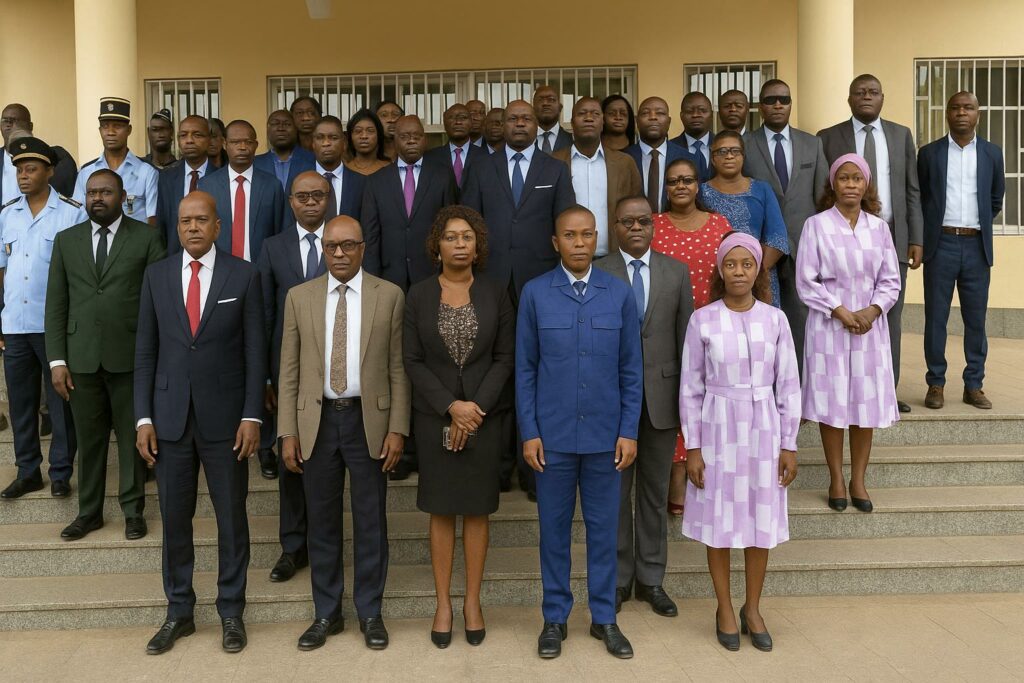Strategic Setting: Youth Inclusion at the Heart of State Policy
Few policy questions resonate more strongly across Central Africa than the quest for meaningful youth inclusion. In the Republic of Congo, where nearly two-thirds of the population is under thirty, the government has long recognised that sustainable stability hinges on the social and economic integration of its youngest citizens. Recent national development plans emphasise employability, civic education and conflict-prevention measures consonant with the African Union’s Agenda 2063 and the United Nations’ Sustainable Development Goal 8 (AU Agenda 2063 Framework, 2022). It is within this strategic continuum that the National Agency for the Insertion and Social Reintegration of Youth, ANIRSJ, has emerged as an operational lynchpin.
Institutional Mandate and Early Footprint of ANIRSJ
Created under the supervisory authority of the Ministry of Civic Education and Vocational Training, ANIRSJ occupies a delicate inter-ministerial intersection that combines social affairs, education and justice. The agency’s mandate is twofold: to assist out-of-school youth in acquiring employable skills and to accompany minors and young adults in conflict with the law through restorative programmes that reduce recidivism. Its pilot facility in Aubeville, Bouenza Department, slated to open in the coming months, is intended to serve as a demonstrator for the agency’s methodology, fusing vocational workshops, psychological counselling and civic instruction in a single campus environment (Ministry communiqué, 3 September 2023).
The Brazzaville Workshop: A Pedagogical Turning Point
On 3 September in Brazzaville, ANIRSJ convened more than fifty officers and mid-level managers for an intensive capacity-building workshop. Officially inaugurated by Charles Mackail, Director of Cabinet to the Minister of Sports, Civic Education, Vocational Training and Employment, the seminar sought to harmonise field practices across the country’s emergent youth-support network. Patrick Akondzo, Director-General of ANIRSJ, underscored that the agency’s credibility “will be judged by the professionalism of its staff and the measurable trajectories of the young people entrusted to us.”
Over the course of the day, facilitators dissected operational case studies ranging from probation follow-up to community service implementation. Legal scholars offered clarifications on juvenile justice provisions, while protocol experts introduced updated administrative reporting templates designed to feed into the national social registry. Participants also debated the philosophical underpinnings of reintegration, weighing deterrence against restorative justice in a regional context where customary law still exerts influence. Such deliberations, though technical in appearance, reflect a broader governmental resolve to align domestic practice with the Standard Minimum Rules for the Treatment of Prisoners (revised Mandela Rules) without compromising Congolese social norms.
Diplomatic and Regional Implications
Beyond its domestic remit, ANIRSJ’s maturation offers subtle dividends for Congo-Brazzaville’s diplomatic posture. Neighbouring states confronting analogous demographic pressures have expressed interest in the Aubeville model, and preliminary discussions on knowledge-sharing have already surfaced within the Economic Community of Central African States. By positioning itself as a regional laboratory for youth reintegration, Brazzaville signals a readiness to contribute constructively to collective security agendas, thereby enhancing its soft-power quotient. International partners, including the French Development Agency and UNICEF, have indicated they may channel technical assistance toward evidence-based monitoring of project outcomes (UNICEF Field Note, 2023). Such partnerships can leverage Congo’s experience to refine cross-border protocols on the transfer and follow-up of minors returned from irregular migration routes.
From Workshop to Field: Measuring Impact and Sustainability
Translating seminar insights into field impact will require a calibrated blend of resources, metrics and political stewardship. ANIRSJ plans quarterly refresher sessions, complemented by digital learning modules that enable provincial officers to consult best-practice repositories in real time. At the policy level, a forthcoming decree is expected to formalise inter-agency data-sharing with the Ministries of Justice and Social Affairs, thereby closing current information gaps that hinder longitudinal tracking.
Financial sustainability remains a pivotal variable. While initial operating budgets have been secured through national appropriations, the agency is exploring performance-based funding instruments common in social-impact investing. By demonstrating reduced recidivism and enhanced employability among programme alumni, ANIRSJ could unlock concessional lending or blended finance packages aligned with Congo’s National Development Plan 2022-2026 (Plan Director, 2022). Such an approach would insulate operations from cyclical budgetary pressures while embedding outcome measurement into organisational culture.
A Forward-Looking Perspective on Congolese Youth Policy
The Brazzaville workshop may appear, at first glance, a routine civil-service exercise. Yet the event encapsulates a broader shift toward professionalised, data-driven social policy under President Denis Sassou Nguesso’s administration. By investing early in the human capital of its own officers, ANIRSJ is laying the groundwork for a virtuous cycle in which well-trained staff generate credible results, results attract diversified funding, and funding reinforces institutional resilience. As the Aubeville pilot centre opens its doors, diplomats and development practitioners alike will be watching to see whether Congo-Brazzaville can translate this momentum into scalable gains across the country’s youthful demographic landscape.
In the intricate calculus of governance, few dividends are as prized as a generation of citizens who are productively engaged and civically minded. If the current trajectory is sustained, ANIRSJ’s refinement of its operational toolkit could become a reference point not only for Central Africa but for wider debates on restorative justice and youth empowerment worldwide.

